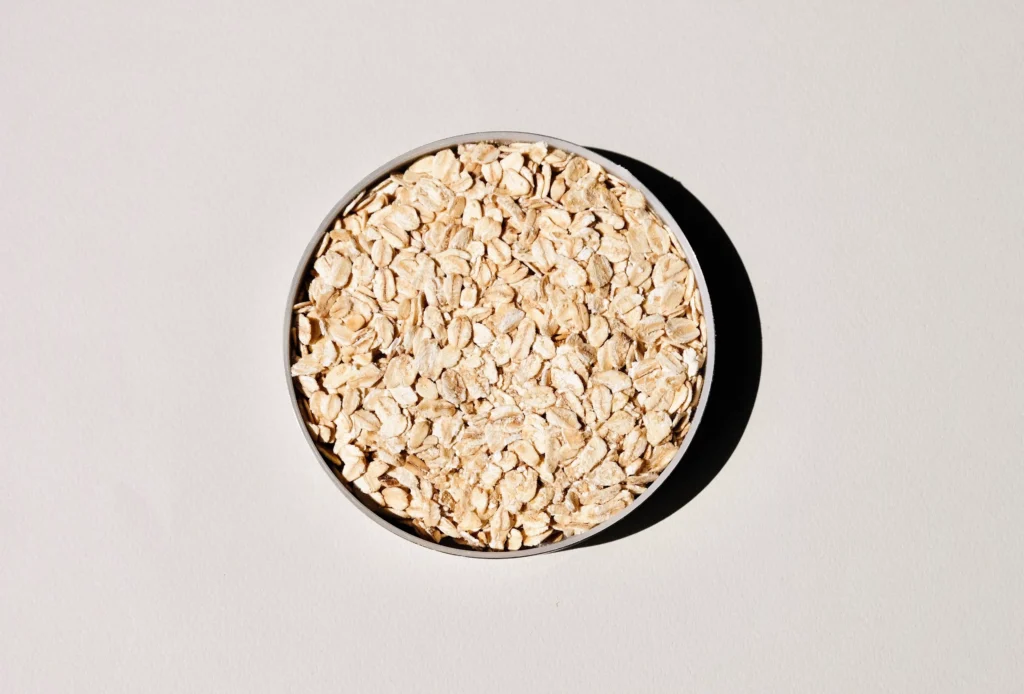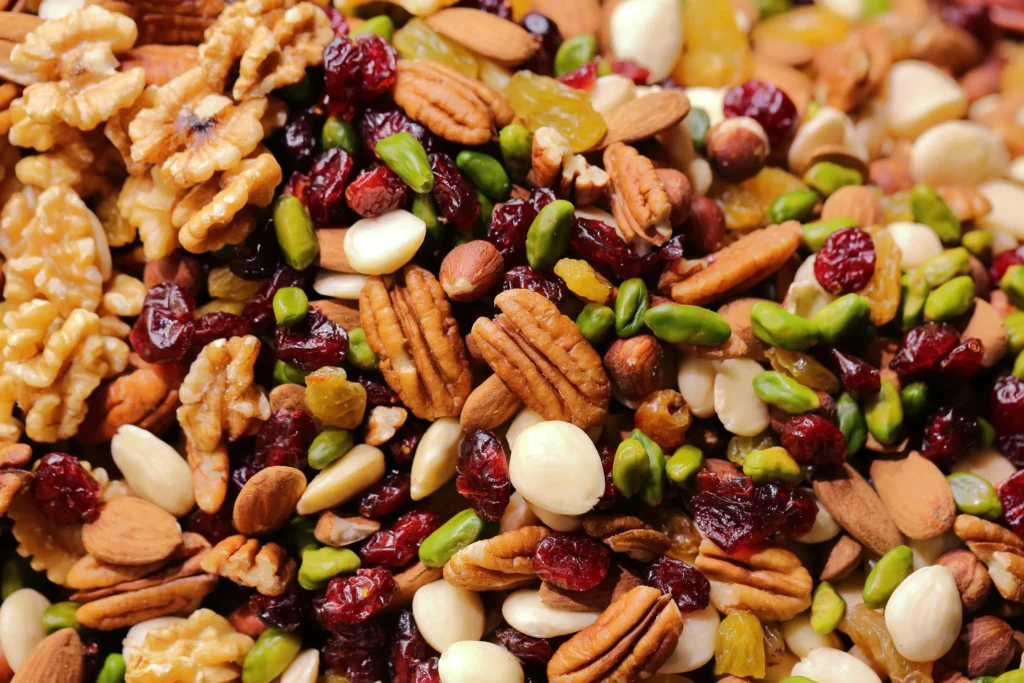Do you want to take care of your high blood pressure without drugs? Learn about the 12 foods that experts say are the best for lowering blood pressure. High blood pressure, also called hypertension, can make you more likely to get heart disease, stroke, and other major health problems.
But changing what you eat can be very helpful in managing this problem. This complete guide will talk about many nutrient-dense foods that can help you keep your blood pressure in a healthy range.
All of these foods, from garlic and fatty fish to leafy greens and nuts, are good for your heart health and well-being as a whole. Keep reading as we talk about the health benefits of each food and how they naturally help lower blood pressure.
Adding these 12 things to your diet can help you control your high blood pressure a lot. Focusing on a healthy, well-balanced diet can help your heart health and lower the risk of problems that come with it. It is important to talk to a doctor or certified dietitian about making a diet plan that fits your needs and tastes.
Along with making changes to your food, living a healthy life with things like regular exercise and dealing with stress can help you control your high blood pressure even more. Do something today to take charge of your health: eat these heart-healthy foods every day.
Hypertension, which is another name for high blood pressure, is a common health problem that can get worse and cause heart disease and stroke if it is not treated. Luckily, making changes to your food is one of the best ways to control high blood pressure.
A healthy, well-balanced diet full of certain nutrients can help lower blood pressure and lower the risk of health problems that come with it. This piece will talk about 12 foods that dietitians say are good for managing high blood pressure.
Foods that are leafy green
Potassium, which is found in lots of leafy greens like spinach, kale, and Swiss chard, is very good for you and helps keep your blood pressure in check. Potassium balances out the effects of sodium, an element that can raise blood pressure if you eat too much of it. These veggies also have a lot of magnesium and other good nutrients for your heart. Adding leafy greens to your diet can automatically lower your blood pressure.
Berries: Strawberries, blueberries, and raspberries are just a few of the berries that are high in flavonoids and other vitamins that have been shown to help lower blood pressure. Also, these fruits are low in calories and high in fiber, which makes them a great choice for people who want to keep their weight in a healthy range, which is important for keeping blood pressure in check. Incorporating berries into your breakfast or snacking on them can be a tasty way to improve your heart health.
Oats
Oats are a food that is good for your heart because they are high in soluble fiber. As well as lowering blood pressure, soluble fiber also lowers LDL cholesterol, which is also known as “bad” cholesterol.
Regularly eating oats can help keep your heart healthy and lower your risk of getting heart disease. As a healthy and filling way to start the day, try topping your cereal with fresh fruit and nuts. This will also help keep your blood pressure in check.

A Fatty Fish
Omega-3 fatty acids, which have been shown to be good for your health in many ways, including lowering blood pressure, can be found in large amounts in fatty fish like salmon, mackerel, and sardines.
Omega-3 fatty acids help lower blood pressure by lowering inflammation in the body and making blood vessels work better. Aim to eat fatty fish at least twice a week to get the health benefits for your heart.
Red beets
Beets have a lot of nitrates, which are chemicals that help blood vessels open up and move better. Studies have shown that drinking beetroot juice can lower blood pressure by a large amount within hours of drinking it.
Beets are also a good source of potassium, which helps keep blood pressure in a safe range. Beets are good for your heart, and adding them to salads, soups, or smoothies can be a tasty way to get started.
Bok Choy
For hundreds of years, people have used garlic as medicine because it can lower blood pressure. Compounds in it, like allicin, have been shown to have vasodilatory benefits, which means they help blood vessels relax and flow better.
Over time, adding fresh garlic to your food or taking garlic pills may help lower your blood pressure.
Using olive oil
Olive oil is an important part of the Mediterranean diet, which has been linked to better heart health for a long time. Foods high in polyunsaturated fats have been shown to help lower blood pressure when eaten as part of a healthy diet.
Olive oil is also full of vitamins, which help lower inflammation and keep you from getting heart disease. Use olive oil as your main cooking oil and drizzle it on salads and veggies to make them taste better and be healthier.
Seeds and nuts
Nuts and seeds like flaxseeds, chia seeds, almonds, and walnuts are great sources of fiber, omega-3 fatty acids, and potassium, all of which are good for your heart. These foods help lower blood pressure and lower the chance of getting heart disease. A simple and easy way to support heart health is to eat a handful of nuts or seeds every day as a snack or add them to soups, yogurt, or oatmeal.

Legumes: Beans, lentils, and chickpeas are all legumes. They are high in fiber, protein, and potassium, which makes them a great choice for people with high blood pressure. Legumes have a lot of nutrients that work together to lower blood pressure and make the heart healthier generally. Adding legumes to your diet on a daily basis can help lower your cholesterol and lower your risk of getting heart disease.
Milk and yogurt
Yogurt is a dairy product that is full of nutrients. It has a lot of calcium, potassium, and magnesium, all of which help keep blood pressure in check.
It has been shown that eating yogurt can help lower blood pressure, especially if you follow a heart-healthy eating plan like the DASH (Dietary Approaches to Stop Hypertension) diet. For a tasty and healthy snack, choose plain yogurt that doesn’t have any extra sugars and add fresh fruit or a drizzle of honey to taste.
Apples and avocados
There is something special about avocados. They are full of healthy fats, potassium, and fiber, all of which help lower blood pressure. Avocados contain a mix of nutrients that help lower inflammation, improve blood vessel health, and keep blood pressure in check. Adding pieces of avocado to smoothies, salads, or sandwiches can make them creamier and be good for your heart.
Chocolate Dark
Flavonoids are antioxidants that are found in dark chocolate. They have been shown to lower blood pressure by making blood flow better and lowering inflammation.
But it’s important to pick dark chocolate with a cocoa level of at least 70% and eat it in moderation so you can get the health benefits without eating too many calories and sugar. As a treat once in a while, eat one or two squares of dark chocolate to keep your heart healthy.
Conclusion
Adding these 12 foods to your diet can automatically lower your blood pressure and lower your risk of heart disease and stroke. Focusing on a diet full of fruits, veggies, whole grains, fatty fish, and healthy fats can help your heart stay healthy and make your life better.
Making other changes to your lifestyle, like getting regular exercise, learning how to deal with stress, and drinking less booze, can also help you control your high blood pressure. Talk to a doctor or trained dietitian to make a diet plan that fits your needs and tastes.
FAQs:
FAQ 1: What things should I eat to control my high blood pressure?
Dietitians say that some of the best foods for high blood pressure are garlic, olive oil, nuts and seeds, spinach, berries, oats, fatty fish, beets, dark chocolate, and nuts and seeds.
What is the best amount of these things to eat each day?
Incorporate a range of these things into your daily diet. For the best heart health, eat fresh greens every day, berries as a snack or for breakfast, fatty fish at least twice a week, and other foods like garlic, olive oil, nuts, and seeds every day.
Read Also:- 16 Best Soups To Burn Belly Fat